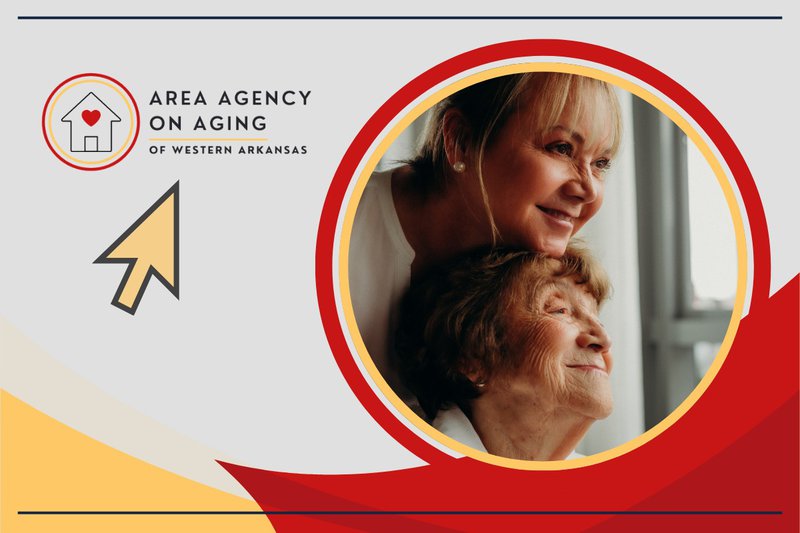Are you snapping at people? Feeling numb or tired all the time? You could be burned out. Many caregivers ignore these signs until their health suffers. This post will help you spot caregiver stress symptoms early and take back control. Don’t wait until it gets worse. Let’s talk about the real warning signs and what you can do now.
Key Takeaways:
- Emotional exhaustion is a major symptom of caregiver stress, often leading to anxiety, depression, mood swings, and a sense of guilt.
- Physical signs include chronic fatigue, poor sleep, frequent illness, body aches, headaches, and changes in appetite.
- Long-term stress and burnout can lead to serious health issues like weakened immunity, high blood pressure, and heart disease.
- Respite care, such as the services offered by Area Agency on Aging of Western Arkansas, and regular breaks, are essential for preventing burnout and helping you recover.
- Simple coping strategies like asking for help, setting boundaries, and joining a support group can make a significant difference.
- Area Agency on Aging of Western Arkansas is a local resource that offers vital resources to caregivers, such as Caregiver Support Groups, one-on-one training, and respite care services.

Emotional and Psychological Caregiver Stress Symptoms
Emotional exhaustion is often one of the first signs of stress. This means feeling worn out all the time, even after a full night’s sleep. You might dread the day before it even begins. Slowly, it becomes harder to care for your loved one because you feel empty. This can quickly lead to burnout, which affects a majority of caregivers.
Stress can also trigger anxiety and depression. The nonstop pressure of caregiving can leave you feeling tense all day. You may notice that you no longer enjoy activities you used to love, or you might find yourself crying without knowing why. Mood swings are another signal. One moment, you may feel upbeat, and the next, you feel deeply sad or irritable. These shifts mean your stress level is likely too high.
Many caregivers also report feeling numb or disconnected. Your mind may be trying to put up a shield after too much strain. This can lead to a sense of guilt, as you feel you “should be doing more,” even when you’re already giving everything you have. Over time, you might also feel a profound loss of identity, as your life becomes defined solely by your caregiving role.
Physical and Behavioral Stress Symptoms
Burnout doesn't just weigh on your mood—it takes a toll on your body. Physical symptoms are a clear warning that you need a break.
- Fatigue and Poor Sleep: You may feel exhausted even after sleeping.
- Frequent Illness: Your immune system might weaken, making you more susceptible to colds, infections, and slow-healing injuries.
- Chronic Pain and Aches: Stress can lead to tight muscles, tension headaches, and chest pain.
- Digestive Issues and Appetite Changes: Stress often affects the gut, leading to stomach cramps or acid reflux. You may lose your appetite or, conversely, start stress-eating.
- Withdrawal from Social Life: You might stop doing activities you once enjoyed, avoid friends, and isolate yourself.
- Harmful Coping Mechanisms: Some caregivers turn to poor eating habits, alcohol, or other substances to cope with the pressure.
Long-term stress has severe health consequences. Studies show that chronic stress raises cortisol levels, which can lead to a weaker immune system, increased risk for high blood pressure and heart disease, and even a shorter life span.
When Caregiver Stress Becomes Dangerous
It's critical to know when to seek help immediately. These are not signs of weakness; they are signs of a crisis.
Seek professional help right away if you experience:
- Thoughts of self-harm or hopelessness.
- An inability to cope with daily tasks.
- Feeling like you no longer care about anything.
- Turning to alcohol, medication, or food as your primary coping mechanism.
These are serious red flags. Speak openly with a medical provider or therapist. You are not broken—you are worn out, and you deserve to get help.
Simple Ways to Reduce Caregiver Stress
When asked how they’re doing, most caregivers say “I’m fine.” But inside, they feel overwhelmed. If that’s you, it means the load has grown too heavy. Here are some actionable steps you can take now to help reduce caregiver stress symptoms.
1. Ask for Help: Start by telling someone, “I can’t do this alone.” Be specific in your requests. Ask a family member to handle groceries or take your loved one to a single appointment. Saying "no" to taking on more is not selfish; it's a form of survival.
2. Practice Daily Self-Care: Small actions can make a huge difference. Walk around the block. Take a few deep breaths before bed. Even a five-minute break to sit quietly or call a friend can help your body and mind hold steady. These aren’t frivolous—they are essential for your well-being.
3. Set Boundaries: You are a loving caregiver, not a superhero. If a task drains you more than it helps, find a way to share or skip it. Setting clear boundaries with family and friends can reduce resentment and prevent burnout.
4. Find Connection: You are not alone in this journey. Join a local or online caregiver support group to connect with others who understand what you’re going through. You can also talk to a social worker or therapist to find emotional tools to help you manage in the long run.
The Power of Respite Care: Managing Caregiver Stress
When is it time to pause and rest? When your mood slips, sleep suffers, and you feel emotionally stuck, take a break.
Respite care means temporarily handing over the caregiving role, allowing you to rest. It could be a few hours with an in-home caregiver or a short stay in a care facility. These small breaks are powerful. They give your body and mind time to recover so you can return calmer and refreshed. Taking a break doesn’t mean giving up; it means claiming a moment to heal.
Get Help Managing Caregiver Stress Symptoms Today
Caregiver stress manifests in various forms—mind, body, and behavior. Recognizing the signs and taking action is the first step toward getting relief.
Area Agency on Aging of Western Arkansas is here to help. We can guide you to local services, support groups, and respite care options. You are not alone, and you are not broken. You are someone who cares, and you deserve to be cared for, too.
Contact us or visit our website to start finding support today.


